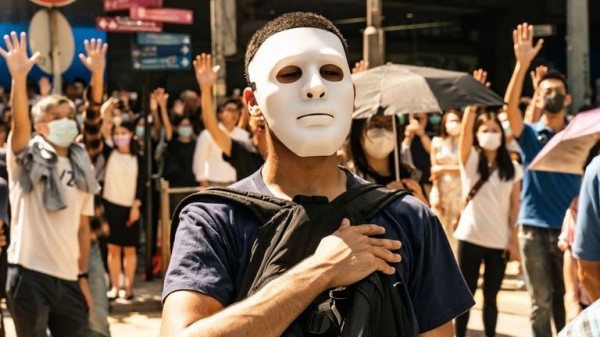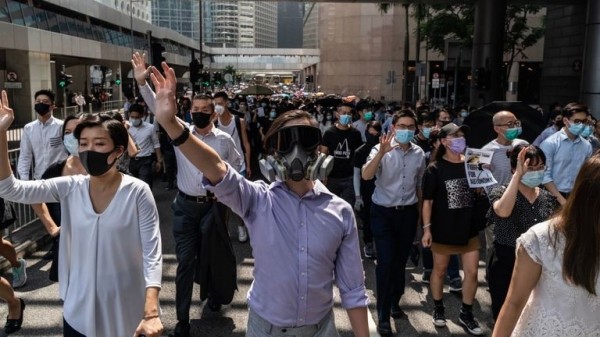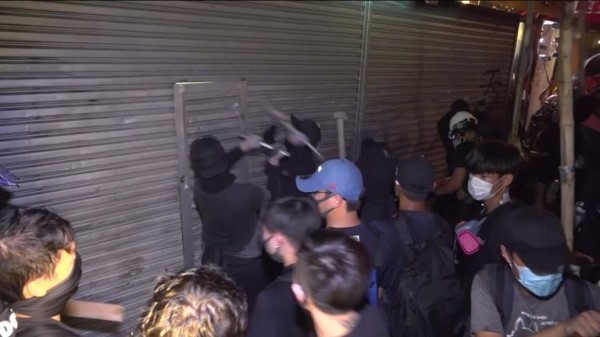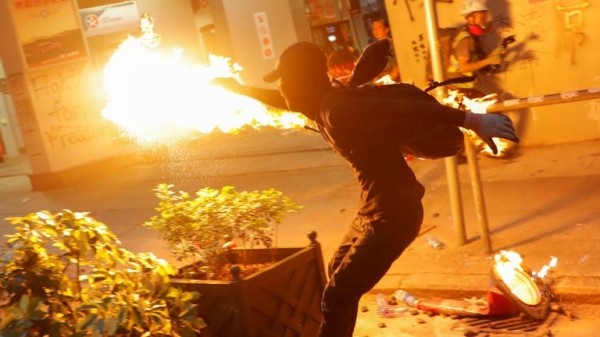Hong Kong to ban protesters from wearing masks, Carrie Lam confirms

Hong Kong is to ban people wearing masks during protests, the territory’s chief executive has confirmed.
Carrie Lam announced the use of the emergency powers – which haven’t been used for more than 50 years – after months of violent street protests.
She said Hong Kong faced “extensive and very serious danger” but stressed it was not under a state of emergency.

Anyone breaking the mask ban could be jailed for a year or fined.
The law says that a facial covering is illegal if it prevents someone at an “unlawful assembly” or “public procession” being identified.
People will not be allowed to paint their faces to get around the ban.
Many protesters have said they will defy the ruling – which comes into force on 5 October.

Thousands of masked protesters marched in the city before Ms Lam announced the ban, chanting slogans like “wearing mask is not a crime”.
The emergency ordinance also allows authorities to make any regulations they believe are in the public interest without approval from the city’s parliament.
The last time the powers were used was 1967, when more than 50 people were killed during riots between leftists and the British-led government.

Enforcing the mask ban could prove problematic however as many Hong Kongers wear surgical masks following the SARS outbreak in 2003.
The protests in the metropolis of more than seven million shows no signs of simmering down.
Thousands again took to the streets earlier this week on the 70th anniversary of communist China.


A student became the first person to be shot with a live round since the protests started in April, as police also fired hundreds of rounds of tear gas and rubber bullets.
After being shot in the shoulder as he fought an officer with what appeared to be a pole, Tsang Chi-kin, 18, was charged with rioting, which carries a penalty of up to 10 years in jail.
Demonstrators have been responding to police tactics by throwing petrol bombs and projectiles, building barricades and lighting fires.

The protests first started over plans for a law that would have enabled people to be extradited to mainland China for trial.
Those proposals were eventually dropped, but people continue to demonstrate over claims of police brutality and what they say is a gradual erosion of Hong Kong’s freedoms.
Under the handover from the UK to China in 1997, the territory was intended to have a special status under the “one country, two systems” principle.
Previous article
Ex-Tory leadership hopeful Rory Stewart to step down
Next article
Homelessness rising and villagers priced out in rural England